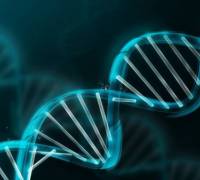| Main » Articles » Health |
 Here's what you need to know about protein supplements. Most popular protein supplements are no more than milk with the nutrition extracted leaving the whey which is then sold for several times the amount you would pay for dehydrated milk. The result is you get less nutrition and spend more money. How does that make sense? Your body does not store protein as it does fat. It makes the protein it needs when it needs it. And, if you're building muscle, it needs it over the entire recovery time between workouts and not just before or just after working out. That makes the idea of dumping a bunch of protein into your system at one time senseless. Most people grossly overestimate the amount of protein they need. Here's how much you need according to the NIH. --> http://www.cdc.gov/nutrition/everyone/ba... . Most people in the developed world get that amount of protein in their daily diet because it amounts to no more than a glass of milk, some beans, and a piece of meat. Excess protein is just wasted and most will be excreted by the body or used as fuel supporting fat gain. Protein supplements are also bad for diets because they are not whole food, have almost no fiber, still contribute calories, but cannot provide the satisfaction and appetite suppression of a natural digestive process. Protein has the same number of calories per gram as sugar. Here's why protein shakes should be avoided: • They are not carefully controlled by the FDA as are foods and drugs. • They may have harmful or undesirable side effects. • May contain metabolically or biologically unavailable proteins because of processing. • Will probably provide more protein than you need with the rest going to waste. • Can unbalance a diet and upset the macronutrient ratios. • Provide you with extra and unnecessary calories. • May contain junk food ingredients to make them tasty. • Possibly provide you unwanted contaminants or toxins. FDA does not require testing. • Are overpriced and waste money. • Can ruin a fat loss diet. • Replaces what you really need - good food! The secret to building muscle, burning fat, and eating healthy is very simply to eat the correct and optimal amount of whole and varied foods as recommended by the US National Institute of Health. Now here are some references from the experts. Here is what the US National Institute of Health warns about supplements. "Always check with your health care provider before taking a supplement, especially when combining or substituting them with other foods or medicine." Ref: http://ods.od.nih.gov/Health_Information... Here’s a white paper which debunks the myth of the protein supplement. Note the following excerpt..."At present there is no evidence to suggest that supplements are required for optimal muscle growth or strength gain.” Ref: http://www.ncbi.nlm.nih.gov/pubmed/15212... Here's one more study to read. Note the excerpt..."Consumption of a recovery drink (whey protein, amino acids, creatine, and carbohydrate) after strength training workouts did not promote greater gains in FFM (Fat free muscle) compared with consumption of a carbohydrate-only drink.” Ref: http://www.ncbi.nlm.nih.gov/pubmed/15105... Here’s another from Live Science. Note the excerpt…"Medical researchers have advised against protein supplements for years for the average person. But many sports trainers continue to push them on amateur athletes simply because they don't know any better.” Ref: http://www.livescience.com/health/protei... Here's what Consumer Reports had to say..."But our investigation, including tests at an outside laboratory of 15 protein drinks, a review of government documents, and interviews with health and fitness experts and consumers, found most people already get enough protein, and there are far better and cheaper ways to add more if it's needed. Some protein drinks can even pose health risks, including exposure to potentially harmful heavy metals, if consumed frequently. All drinks in our tests had at least one sample containing one or more of the following contaminants: arsenic, cadmium, lead, and mercury. Those metals can have toxic effects on several organs in the body." Ref: http://www.consumerreports.org/cro/magaz... Side effectsSome people who are allergic to milk may be specifically allergic to whey. In moderate doses whey protein doesn't generally cause any adverse events. However, consuming severely high doses can cause:
Check out this video --> Does protein powder help to build muscle?It is certainly true that protein is required to build muscle, as well as for numerous other important functions in the body. However, there is a limit to how much muscle growth can actually occur, no matter how much protein you consume. The first thing to remember is that eating protein alone will not increase muscle. To build muscle you have to use it. The slight damage done to the muscle during weight lifting and other resistance activities and then healing is how the muscle grows larger, so if you are simply consuming protein powders in order to gain muscle but still sitting at home on the sofa, this isn’t going to happen. Muscle growth requires adequate supplies of protein, however, for the majority of people this is easily obtained from food sources and there is no need t supplement with powders. The average American has a diet higher in protein than is in fact recommended anyway, so adding extra with powder is an expensive process that is unlikely to have any real effects. To encourage maximum protein synthesis and muscle growth, the diet should also be sufficient in complex carbohydrates which can be burnt to fuel muscles leaving the protein free for synthesis of new tissue. (Also read: Should you eat protein and carbs together) What are the side effects?Consuming high levels of protein in the form of protein powders or even from food alone can be detrimental for our health. Fat gain Adding extra protein to the diet in the form of protein powder adds extra calories. As excess protein cannot be stored in its original form in the body, if you are not burning these calories by doing a sufficient amount of physical activity, or doing enough weight bearing activities to build more muscle, these extra calories are likely to be converted to fat. (See also: How to burn more fat while exercising) An increase in protein intake as well as calories without an increase in physical activity levels is likely to result in an equal gain in both fat and muscle, which may not be exactly what you are looking for when you supplement protein powder. Bone loss High levels of protein intake generates a large amount of acid in the body due to the excess sulphates and phosphates that are introduced. The kidneys then try to restore the balance of acid by excreting more acid, at the same time the skeleton releases calcium which is also lost in the urine as a buffer. This results in the loss of calcium from bones which can increase the risk of osteoporosis if it occurs over a longer time frame, particularly in high risk groups such as women. There is a possibility however, that a diet which is high in alkaline fruit and vegetables in addition to protein may help to counteract this effect. Kidney damage High protein diets can put increased strain on the kidneys due to the need to excess waste products called ketones that are generated with such a diet and the need to excrete these products. For people with reduced kidney function this stress can worsen the condition and may even contribute to reduced function in people with healthy kidneys if followed for a long period of time. Dehydration A high protein intake, particularly if you are not eating enough carbohydrates, can push the body into ketosis, a state in which there is a build-up of toxic ketones in the body. Your kidneys then go into overdrive trying to eliminate these substances and in the process a lot of water is lost as urine. This increases the risk of dehydration, particularly if you are also losing a lot of fluid through sweat during exercise. This dehydration not only puts stress on the kidneys, but can also affect the function of the heart in extreme cases. Other undesirable side effects could include dizziness, lethargy and bad breath. How much protein do we need?Protein should not make up more than 30% of your daily calories, but in fact much less than this, around 15%, will provide most people with enough protein. The recommended daily allowance for protein is 0.36 grams per pound of body weight. So if you weigh 190 pounds, you will need about 68 grams of protein per day. If you consider that an average steak contains about 42 grams of protein, this is not difficult to achieve. Source: http://au.answers.yahoo.com/question/index?qid=20110518015330AAZcUU9 | |
| Views: 652 | Tags: | Rating: 0.0/0 |
| Total comments: 0 | |




